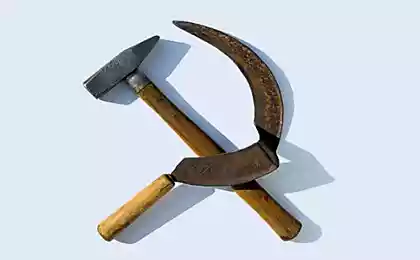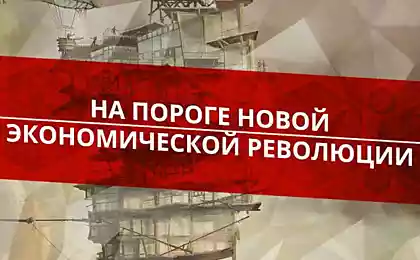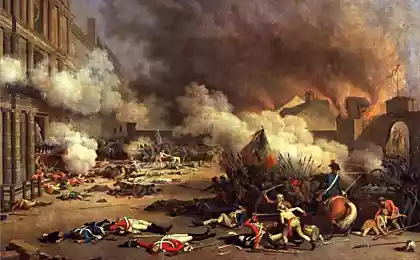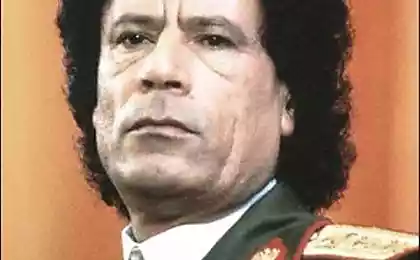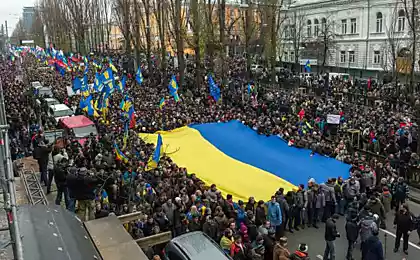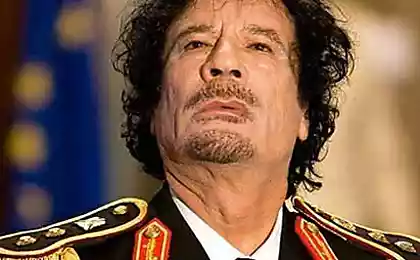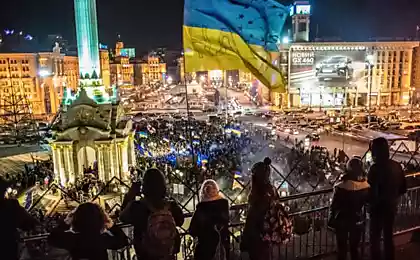635
The revolution which all the "silent."
source
The story told by Italian radio about the ongoing revolution in Iceland, is a striking example of how little our media tell us about the world. In 2008, at the beginning of the financial crisis, Iceland is literally bankrupt. The reasons were mentioned only in passing, and since then, this little-known member of the European Union is called, it disappeared from the radar.
As one of the other European countries are under threat of bankruptcy, which threatens the survival of the euro, which, again, will have very different consequences for the whole world, the last thing those in power want to, is that Iceland has become an example for others. And that's why
Five years of pure neo-liberal regime did Iceland (population 320,000, without an army), one of the richest countries in the world. In 2003, all banks in the country have been privatized, and in order to attract foreign investors they offered online banking, and minimal costs allowed to offer relatively high yields. Account called IceSave, attracted a lot of small British and Dutch investors. But with the growth of investment and growing foreign debt of banks. In 2003, Iceland's debt amounted to 200 percent of its GDP, and in 2007 was 900 percent. The global financial crisis of 2008 was the fatal blow. The three major Icelandic banks - Landbanki, Kapthing and Glitnir, surfaced belly up and were nationalized, and the krone has lost 85 percent of its value against the euro. At the end of the year Iceland declared bankruptcy.
Contrary to what might be expected, in the course of the direct application of democracy crisis led Icelanders to restore their sovereign rights, which eventually led to a new constitution. But this was achieved through the pain.
The Prime Minister of the social-democratic coalition government was negotiating Geir Haarde to provide $ 2.1 billion loan to which the Nordic countries have added another 2, 5 billion. But the international financial community pressed on Iceland, so that it held radical measures. FMI and the European Union (poss. Meant IMF, ie the IMF; approx. Mixednews) would take on the debt, arguing that the country is the only way to repay Britain and the Netherlands.
Protests and riots continued, eventually forcing the government to resign. The elections were moved up in April 2009, bringing to power a left coalition, which condemned the neo-liberal economic system, but immediately surrendered requirements for Iceland to repay a total of three and a half billion euros. It is required that every citizen of Iceland, the monthly fee of 100 euros for fifteen years to pay off debts incurred by individuals against other individuals. It was the straw that broke the camel's back.
What happened next was extraordinary. The opinion is that the citizens have to pay for the mistakes of financial monopoly that the whole country should be packed tribute to repay private debt, it has changed the relationship between citizens and their political institutions, and eventually led to the fact that the leaders of Iceland took the side of their constituents. The Head of State Olafur Ragnar Grimsson refused to ratify a law that would have made the citizens of Iceland are responsible for the debts of Icelandic bankers and agreed to convene a referendum.
Of course, the international community has only increased the pressure on Iceland. Britain and Holland threatened harsh reprisals, which will lead to the isolation of the country. When Icelanders gathered to vote, the IMF threatened to deprive any country of its assistance. The British government threatened to freeze savings and current accounts Icelanders. Grimmson says: "We were told that if we do not accept the conditions of the international community, it will become the North Cuba. But if we agree, that would be the north of Haiti.
In the March 2010 referendum, 93 percent voted against the payment of debts. The IMF immediately froze lending. But the revolution (which virtually wrote the mainstream media) would not be intimidated. With the support of angry citizens government initiated civil and criminal investigations against those responsible for the financial crisis. Interpol issued an international warrant for the arrest of the former president of the bank Kaupthing Sigurdur Einarsson, bankers and others are also involved in the crash fled the country.
But Icelanders did not stop there: they have decided to adopt a new constitution that would free the country from the power of international finance and virtual money.
To write a new constitution, the people of Iceland elected 25 people from among 522 adults who do not belong to any political party, which is recommended at least 30 people. This document was not the work of a handful of politicians, as was written on the Internet. The constituent meeting held on-line, and citizens can write their comments and make suggestions, his eyes watching as their constitution is gradually taking shape. The Constitution, which ultimately was born in the framework of the people's participation, will be submitted to parliament for approval after the next election.
Today, the same solution available to other nations. The people of Greece said that the privatization of the public sector is the only solution. The same faces, and the Italians, Spanish and Portuguese.
Let's take a look at Iceland. On their refusal to submit to foreign interests, when tiny country stated loud and clear that their nation is sovereign.
That is why Iceland is not in the news.
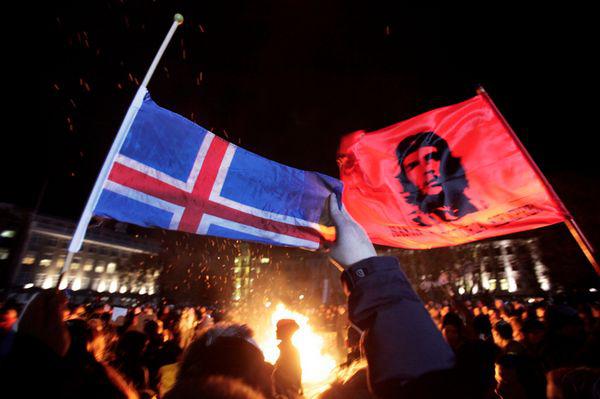
Source:
The story told by Italian radio about the ongoing revolution in Iceland, is a striking example of how little our media tell us about the world. In 2008, at the beginning of the financial crisis, Iceland is literally bankrupt. The reasons were mentioned only in passing, and since then, this little-known member of the European Union is called, it disappeared from the radar.
As one of the other European countries are under threat of bankruptcy, which threatens the survival of the euro, which, again, will have very different consequences for the whole world, the last thing those in power want to, is that Iceland has become an example for others. And that's why
Five years of pure neo-liberal regime did Iceland (population 320,000, without an army), one of the richest countries in the world. In 2003, all banks in the country have been privatized, and in order to attract foreign investors they offered online banking, and minimal costs allowed to offer relatively high yields. Account called IceSave, attracted a lot of small British and Dutch investors. But with the growth of investment and growing foreign debt of banks. In 2003, Iceland's debt amounted to 200 percent of its GDP, and in 2007 was 900 percent. The global financial crisis of 2008 was the fatal blow. The three major Icelandic banks - Landbanki, Kapthing and Glitnir, surfaced belly up and were nationalized, and the krone has lost 85 percent of its value against the euro. At the end of the year Iceland declared bankruptcy.
Contrary to what might be expected, in the course of the direct application of democracy crisis led Icelanders to restore their sovereign rights, which eventually led to a new constitution. But this was achieved through the pain.
The Prime Minister of the social-democratic coalition government was negotiating Geir Haarde to provide $ 2.1 billion loan to which the Nordic countries have added another 2, 5 billion. But the international financial community pressed on Iceland, so that it held radical measures. FMI and the European Union (poss. Meant IMF, ie the IMF; approx. Mixednews) would take on the debt, arguing that the country is the only way to repay Britain and the Netherlands.
Protests and riots continued, eventually forcing the government to resign. The elections were moved up in April 2009, bringing to power a left coalition, which condemned the neo-liberal economic system, but immediately surrendered requirements for Iceland to repay a total of three and a half billion euros. It is required that every citizen of Iceland, the monthly fee of 100 euros for fifteen years to pay off debts incurred by individuals against other individuals. It was the straw that broke the camel's back.
What happened next was extraordinary. The opinion is that the citizens have to pay for the mistakes of financial monopoly that the whole country should be packed tribute to repay private debt, it has changed the relationship between citizens and their political institutions, and eventually led to the fact that the leaders of Iceland took the side of their constituents. The Head of State Olafur Ragnar Grimsson refused to ratify a law that would have made the citizens of Iceland are responsible for the debts of Icelandic bankers and agreed to convene a referendum.
Of course, the international community has only increased the pressure on Iceland. Britain and Holland threatened harsh reprisals, which will lead to the isolation of the country. When Icelanders gathered to vote, the IMF threatened to deprive any country of its assistance. The British government threatened to freeze savings and current accounts Icelanders. Grimmson says: "We were told that if we do not accept the conditions of the international community, it will become the North Cuba. But if we agree, that would be the north of Haiti.
In the March 2010 referendum, 93 percent voted against the payment of debts. The IMF immediately froze lending. But the revolution (which virtually wrote the mainstream media) would not be intimidated. With the support of angry citizens government initiated civil and criminal investigations against those responsible for the financial crisis. Interpol issued an international warrant for the arrest of the former president of the bank Kaupthing Sigurdur Einarsson, bankers and others are also involved in the crash fled the country.
But Icelanders did not stop there: they have decided to adopt a new constitution that would free the country from the power of international finance and virtual money.
To write a new constitution, the people of Iceland elected 25 people from among 522 adults who do not belong to any political party, which is recommended at least 30 people. This document was not the work of a handful of politicians, as was written on the Internet. The constituent meeting held on-line, and citizens can write their comments and make suggestions, his eyes watching as their constitution is gradually taking shape. The Constitution, which ultimately was born in the framework of the people's participation, will be submitted to parliament for approval after the next election.
Today, the same solution available to other nations. The people of Greece said that the privatization of the public sector is the only solution. The same faces, and the Italians, Spanish and Portuguese.
Let's take a look at Iceland. On their refusal to submit to foreign interests, when tiny country stated loud and clear that their nation is sovereign.
That is why Iceland is not in the news.

Source:
